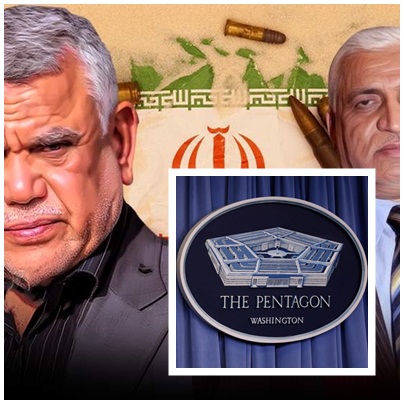
America realizes it is impossible to stop Iranian militias from firing missiles at its military bases in Iraq. It has therefore adopted a new policy to deal with pro-Iran fighters in Syria and Iraq, who seem to be unconcerned about the security of their country, but rather more concerned about implementing Iran’s orders. America has responded with two messages. In the first, it has told the militias in Iraq that the U.S. is losing patience, and that blocking its interests would have dire consequences. In the second message, which was more dangerous, America addressed an Iran that has been defiant, arrogant and procrastinating, especially in the Vienna discussions. Iran thinks that its previous challenges have frightened the U.S. But it seems that a malicious America has a deliberative scheme, whereby concessions are initially made with the hope of persuading Iran to return to the nuclear agreement and listen to the voice of reason.
But no matter how Iran tries to approach their movement, the Taliban cannot forget that in the past, Iran helped defeat it. Therefore, Tehran sees the rise of an extremist force in Afghanistan as a serious threat to its security. This means that if Iran does not comply with the terms of the Vienna negotiations, which has been taken for granted, the Taliban will cross its borders. This is how American policy works; it does not have fixed positions. Instead, American policy varies according to its interests. This means that America is diversifying its options with Iran after previous options have become less effective, and because Joe Biden’s concessions favor Iran. However, Iran has not used these concessions to turn over a new leaf and halt the suffering of its people. Instead, it has become more arrogant and has adopted a cunning, deceitful and defiant approach to the international community. In fact, it has taken a hard-line position in the Vienna negotiations, and has ignored the requests of the International Atomic Energy Agency.
The response to those concessions has been the opposite of what was expected. In fact, Iran only took a firm response when the Israeli chief of staff and the foreign minister met with their American counterparts. Both meetings ended by defining common goals and basic givens in the Vienna negotiations.
In order to prevent Iran from acquiring nuclear weapons and force it to return to the Joint Comprehensive Plan of Action, these meetings have put pressure on Iran in several ways. For example, America has pointed out the consequences of striking Iranian-backed militias in Syria and Iraq and noted the American withdrawal from Afghanistan, which will have dire consequences for Iran, as it will pave the way for the Taliban’s return. With current developments in Afghanistan following the withdrawal of the American troops, the Taliban’s influence has increased, which has worried Iran and pushed it to seek rapprochement with the movement. This has been clearly revealed by the tone of government mass media, including the Kayhan newspaper. Kayhan reported that since the Taliban has begun current military operations, “the movement today is not like the previous Taliban.”
It seems that Israel has convinced America that a lax approach to Iran will no longer work. Therefore, Biden took a tougher tone with Iran in sudden strikes that some political analysts consider a new shift in U.S policy regarding pro-Iran fighters. Recognizing that shift has taken place will depend on the response from the militias. Will they seek to escalate? Or are the messages that have already been agreed upon in prior agreements merely seeking to instigate tension, fool others and cover up the deals reached in secret negotiations? The coming days will prove that the situation is a show, just as it was in the past.

Leave a Reply
You must be logged in to post a comment.